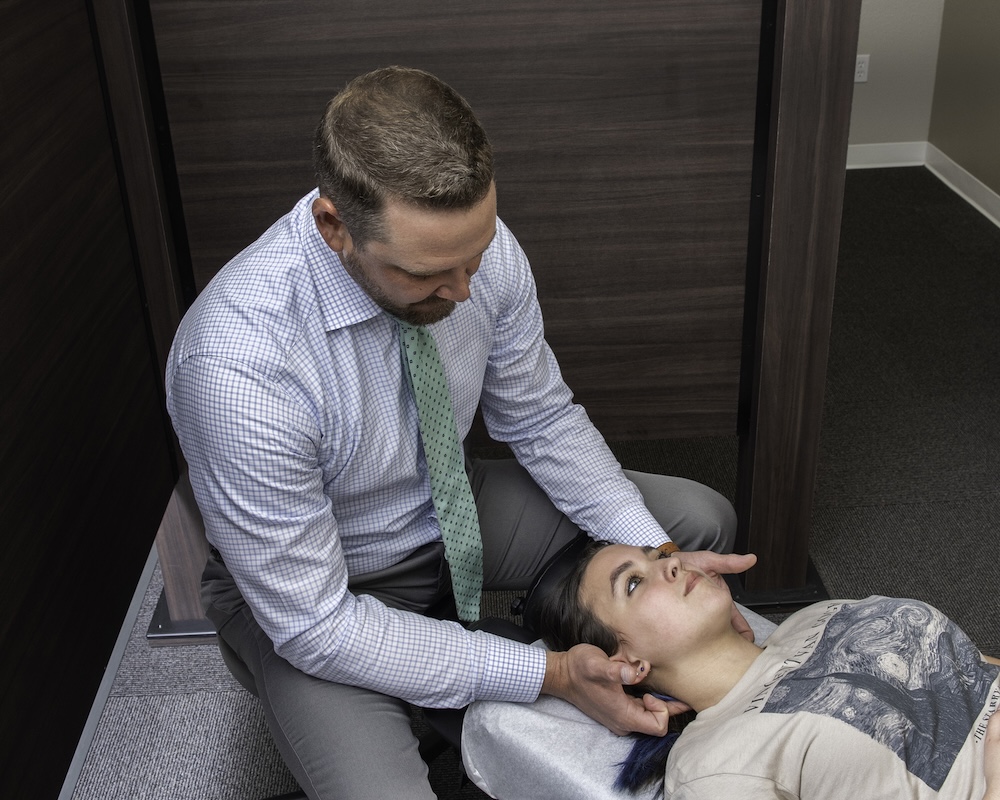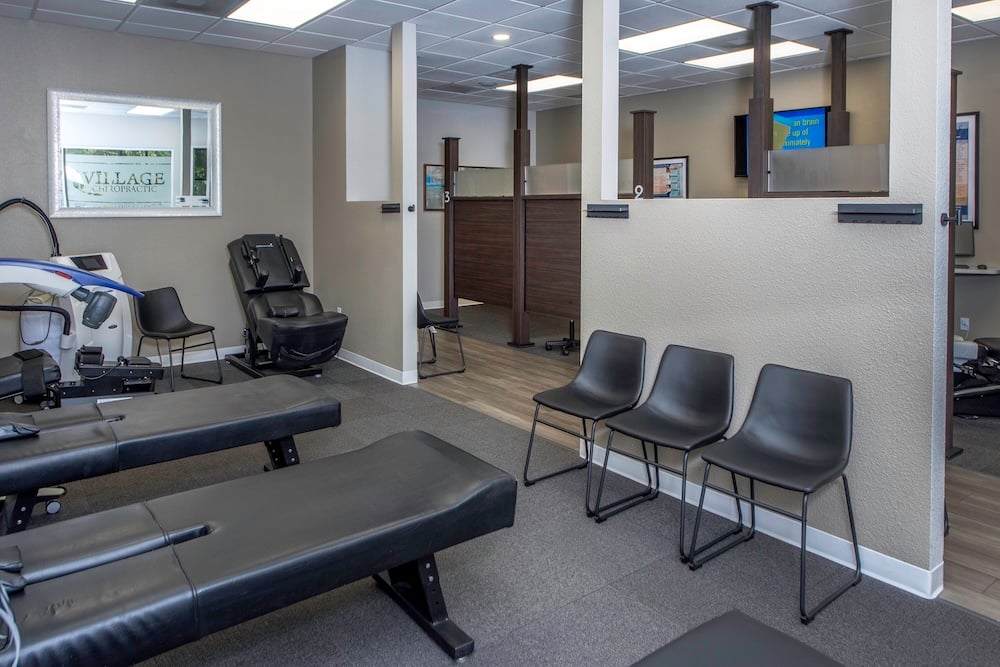How to Sleep Better with Chronic Pain
5 min read

Having pain and discomfort can make sleep nearly impossible. Because high-quality sleep is vital for your overall well-being, you need to find ways to get your rest–even if you have chronic pain.
Chronic pain and sleep actually feed into each other. When pain is severe, it’s harder to sleep, and sleeping less can make pain feel worse. This blog post will share several tips that can help you sleep better even if you have chronic pain.
What is Chronic Pain?
Chronic pain is ongoing, often resulting from a previous injury or a condition such as arthritis or spinal stenosis. If you have chronic pain, it often gets in the way of your everyday life. It makes performing your usual activities, such as work or exercise, harder. It can also get in the way of other things, like sleep.
How Does Chronic Pain Interfere with Sleep?
Chronic pain can disrupt sleep for obvious reasons: when you aren’t comfortable, it isn’t easy to sleep. However, it is important to remember that even though your pain may be the source of your poor sleep, other factors could be at play. Address both the pain and the sleep itself to start feeling your best.
Here are some essential tips to help you get on track with a restorative and effective sleep schedule.
Create a Supportive Sleep Environment
You want to make sure that your bed and pillow are supporting your body properly. If your bed is uncomfortable, it may be time to upgrade your mattress, pillow, or both!
Make sure that the room you’re sleeping in is free from noise and lights. Blackout shades or drapes are helpful if you tend to have light shining in early in the morning.
A clutter-free room can also help improve sleep quality. Feeling like you have a “safe space” to rest is a psychological tactic, but it does help with being able to rest better. Take a few minutes to tidy up your bedroom before going to sleep by moving all extra clothes to a laundry hamper and putting away any reminders of work, school, or other stressors.
Your sleep environment should also be screen-free. In fact, try to stop watching a screen at least 60 minutes before you want to go to sleep. Many people like to sleep with their phones nearby or fall asleep to a TV show, but this can hinder sleep quality. The blue light screens give off can keep your brain awake, making it harder to fall asleep and stay asleep.
Related Read: Best Sleeping Positions And Tips For Back Pain
Practice a Regular Sleep Schedule
Staying on a consistent sleep schedule helps with the quality of your sleep. This means you should go to bed around the same time each night. If you have to be awake by a certain time the following day, go to bed early enough to ensure a full 8 hours of sleep.
Creating a regular sleep schedule can help relieve chronic pain. This is because sleep has a positive impact on reducing inflammation. When you’re not sleeping enough, your inflammation levels may go up, which can make pain from chronic conditions worse.
Avoid taking long naps during the day since this can make it difficult to fall asleep at the same time each night.
Stretch Regularly and Exercise
Regular stretching and exercise are surefire ways to improve sleep quality. Aerobic forms of exercise cause the body to release endorphins, the “happy” chemicals in the brain. Having an endorphin release before sleep makes you likely feel less anxious or stressed before bed.
Stretching also helps improve sleep because it improves blood flow and relieves muscle tension. Try to get in the habit of doing some light stretching in the evening before going to bed.
Always talk with your doctor before starting a new exercise regime, especially if you struggle with a chronic pain condition.
Practicing Mindfulness
Mindfulness and meditation can help you relax your mind to facilitate sleep better. Many people struggle with sleep because it is hard to ease their minds and relax at night. Whether worrying about something that happened at work or thinking about how to prepare for the next day, it is best to find ways to quiet your mind before falling asleep and let these worries fade away. Try taking some deep breaths before going to sleep. Think about the things that are in your control. If you are thinking about things you can’t control, try your best to release these thoughts and focus on what you can control instead.
Managing Chronic Pain with Chiropractic Care
If your chronic pain is interfering with your sleep, one of the simplest solutions can be a visit to your chiropractor. Chiropractors are uniquely trained to identify and begin correcting the issues that could be causing your chronic pain. Some of the techniques they can use include:
- Spinal adjustments
- Cold laser therapy
- Knee or back traction, depending on what is hurting
- Myofascial Acoustic Compression Therapy
- Cryotherapy
The right combination of therapies depends on what hurts and how long it’s been hurting. Each of these different approaches can help to correct underlying issues so you can start feeling better. And that means better sleep.
Spinal adjustments realign the spine and nervous system. When everything is in better alignment, your entire body works better. Adjustments may not be recommended depending on where you’re experiencing pain until you’re more mobile.
Chiropractors widely use cold laser therapy to reduce the inflammation around a joint or in a muscle to promote faster healing. The light is simply focused on the area where you’re hurting for about 10-15 minutes each session to increase circulation in that area and decrease inflammation.
Knee or back traction can help to realign the joints while also reducing the pressure on the joint to help reduce the pain that you experience.
Myofascial Acoustic Compression Therapy (MyACT) can help muscle, joint, or tendon pain by treating the connective tissue around it. This soundwave therapy works at a cellular level to increase circulation in an area of the body, providing pain relief.
Your chiropractor may recommend one or several of these, depending on your specific challenges. You will need more than one round of treatment to see results. Typically, several sessions over a few weeks are needed to see results that last. However, you may see some improvement right away.
Related Read: 6 Ways To Treat Chronic Back Pain That Really Work
Avoiding Caffeine for Adequate Sleep
Coffee, energy drinks, and other sources of caffeine are widely used by individuals to help them wake up and function throughout the day. Over 90% of Americans drink caffeine daily, and many of these individuals consume too much caffeine or don’t know how much caffeine is safe to consume in a day. Additionally, the amount of caffeine you consume is only one potential reason it impacts your sleep, another issue can be when you have caffeine. Many people use a general rule of not drinking caffeine after lunch or in the early afternoon, while others push that time much later in the day.
Caffeine may be the culprit if you struggle to get enough restful sleep. The FDA (Food and Drug Administration) suggests that 400 mg of caffeine per day is safe to consume. That is approximately two small cups of coffee every day. If you’re having more than that, you might consider cutting back to improve your sleep.
Get Help So You Can Sleep Better
Sleeping well will help to ensure that you’re feeling your best, but if you struggle with chronic pain, this may be easier said than done. The team at Village Chiropractic can help you identify the source of your pain and create a plan to help you feel better soon. And that means, better sleep is on the horizon! Request an appointment at our office in The Woodlands.




